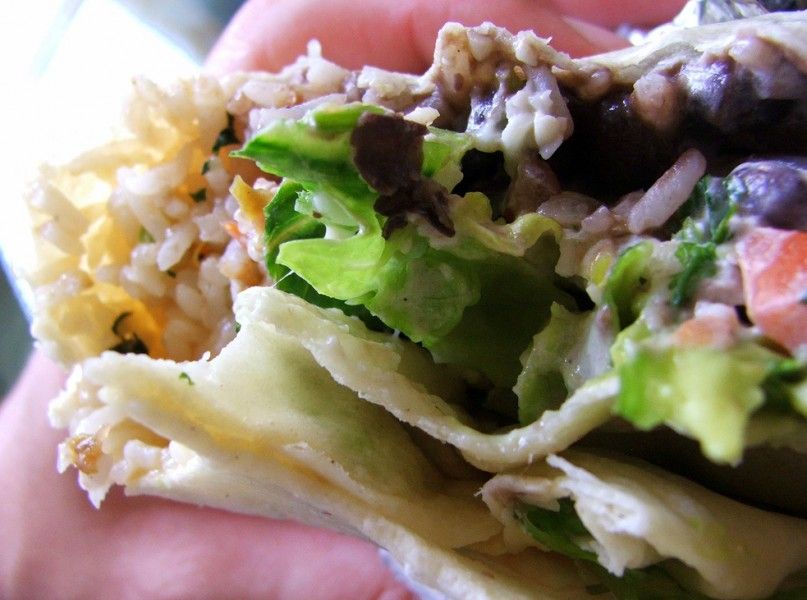America’s burrito heaven (or to some, hell,) is at it again; the franchise has some reaching for more Tabasco, and others for their TV remotes.
Chipotle Mexican Grill is coming out with a new TV series, Farmed and Dangerous. (And yep, Chipotle Mexican Grill is their full name.) The series is a satirical comedy taking a stab at industrial agriculture in America. With the first episode is set to air on February 17th, Chipotle has some in agribusiness up in arms, while others wait with burritos in hand for the pilot episode.
“Chipotle’s genuine mission to change the world of fast food is a great foundation for storytelling,” said Tim Piper, a partner at Piro and director of Farmed and Dangerous. “The characters and plot reflect Chipotle’s position on sustainable agriculture and enables Chipotle to communicate with more engagement than traditional advertising.”
You need not to further than the show’s basic premise to gather that Chipotle isn’t exactly big-ag’s best friend. In the first season, the show’s fictional industrial giant, AnimoilÒ, introduces a petroleum-based animal feed called PetroPelletÒ. (We can be pretty sure neither of these will be appealing.) PetroPelletÒ “promises to reduce industrial agriculture’s dependence on oil by eliminating the need to grow, irrigate, fertilize and transport the vast amount of feed needed to raise livestock on factory farms,” according to Chipotle’s description. But, “before its new feed formula can forever reshape industrial agriculture, Animoil’s plans go awry when a revealing security video goes viral sending Animoil and their spin master, Buck Marshall (Ray Wise — “Twin Peaks,” “Mad Men,” “24″) of the Industrial Food Image Bureau (IFIB), into damage control mode.”
To boot, Chipotle doesn’t have its brand anywhere within the fictional storyline, according to a statement. But the anti-big-ag message comes through loud and clear.
Taking a heavy non-GMO stance, Chipotle touts its business model of sourcing local food as much as possible, and the company aims to become completely GMO-free. Chipotle’s communications director, Chris Arnold, sees media like this as a way to spark conversation. In an interview with Brandchannel, Arnold discussed Scarecrow, Chipotle’s precursor short film that now has over 11 million views. Arnold said the approach “isn’t a tool to drive people to our restaurants; we have advertising and local marketing for that. This is an initiative about bigger-picture values.”
Chipotle’s holier-than-thou approach seems to be working. The organic industry had $35 billion in sales and 10 percent growth in 2012 and continues to grow. Chipotle is valued at almost $15 billion dollars, ranking in the top 20 most profitable fast-food chains. (Not to mention, they had folks running around dressed in tin foil just for a free bite—they’ve gotta be doing something right.)
Notice the drone-like crow at 0:58? Or the sad looking cow at 1:35? Or, how about the creepy Willy-Wonka remix, or the lovable main-character scarecrow figure amid the giant “Crow Foods Inc.”? The video paints quite an image for big-ag. And as Brandchannel’s Dale Buss points out, “the reality is that Chipotle’s meat is just as dead as McDonald’s.” On Chipotle’s side, this film has moments that unfairly demonize big-ag, at best, and are filled with hypocrisy, at worst.
A big criticism of Chipotle’s hypocritical marketing is that while Chipotle claims it supports small farmers, its approach to buying produce at an affordable price sometimes suggests otherwise. Just a few months ago, Missouri Farm Bureau President Blake Hurst responded to Chipotle’s short films, sarcastically calling the company a “moral beacon.” The piece is worth a full read, but here’s an excerpt:
“Most farms in the Midwest hit every checkpoint on the way to evil…. Corn, soybeans, genetically modified seed, pesticides, commercial fertilizer, cows and pigs eating what they produce…and some of their corn likely goes to an alcohol plant! They’re so industrial that they are beyond redemption. The Chipotle video implies that conventional farmers won’t change because they’re somehow morally deficient or suppliers force them into the wrong production practices or they just lack imagination. Nothing could be further from the truth. If Chipotle would raise the prices paid to family farmers, the meat promised to customers will become available. Pay farmers enough, and they’ll probably wear scarecrow costumes to deliver meat to Chipotle’s stores.”
No doubt this new series will cause a wave of discussion, but we’re left to wonder to what extent. While Chipotle raises an important point that small farmers are losing out in today’s system and need to be better sustained, big-ag isn’t necessarily the sole enemy. (Or, even an “enemy” at all.) If Chipotle (and any other anti-industry-ag folks) lump GMOs, antibiotics, animal cruelty, and sub-par nutritional food issues all together, the conversation will be null and void. But, if we find our way into a conversation in which we can parse the good and the bad, this might not be such a bad thing after all.
FEATURED PHOTO: Sarah Korf/Flickr





